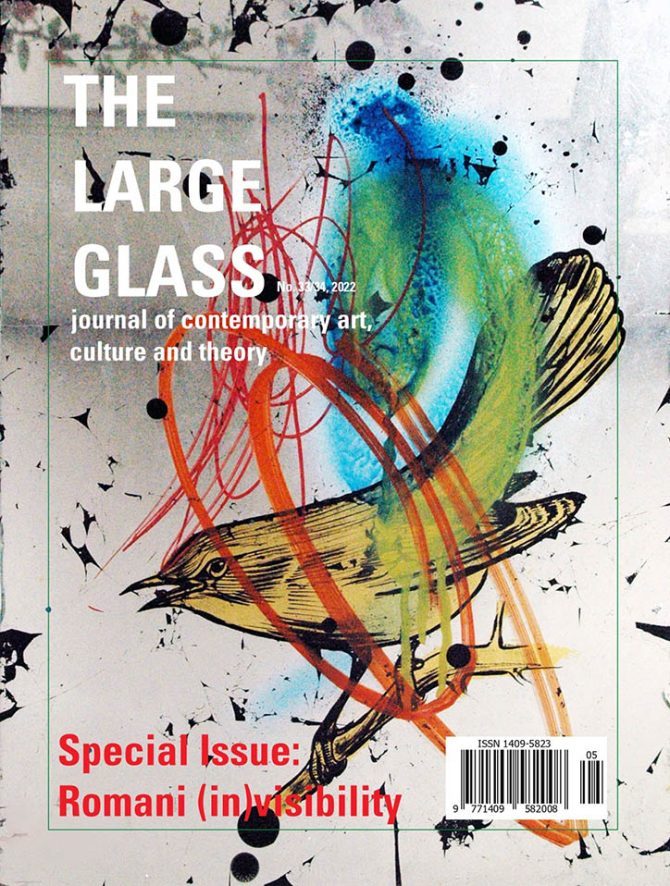
This special issue of the Large Glass offers insights into diverse aspects of Romani-related themes and contributes to the contemporary debate and visual articulations regarding the social (in)visibility of Roma people. The (in)visibility of the Roma is positioned in diverse social contexts, including modes of agency, strategies of recognition, and forms of artistic and cultural representations. In many cases the representations strengthen the otherness of a particular people, resulting in a situation whereby these groups become increasingly isolated, shrinking at the societal edges. This shrinking visibility is important in understanding how certain groups might be considered as being excluded from their surroundings, detained in the betweenness of (in)visibility, conditions that can be defined as organized and systematic violence. Thus, this special issue offers various aspects and approaches to Romani culture for scholars and artists in the field of Romani Studies and recognizes the urgent need to readdress the position of Roma people when most projects for their integration have failed and much remains to be done in terms of the humanitarian response and ethical human commitments. The set of topics presented in this volume through texts and artistic projects related to a wide range of important themes, such as the Romani history, different cultural contexts, traditions and customs rooted in the past, and crucially engaged art projects that reflect on the complex connotations and contest the existing paradigm.
The contributors to this issue are Daniel Baker, Kimmo Granqvist, Joanna Warsza, Eszter György, Joost Vandebrug, Suzana Milevska, Ivana Hadjievska, Monika Weychert, Mihail Stojanoski, Amanda Boetzkes, Mira Gakjina.
Editor: Tihomir Topuzovski
Layout: PrivatePrint
The publication of the journal is supported by the Ministry of Culture of the Republic of North Macedonia